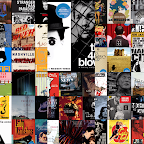One year after the publication of The Color Purple
And although it's still considered one of the most controversial contemporary classics ever written as year after year, Purple
From a storytelling standpoint, you can't help but acknowledge the way that certain themes or techniques have – perhaps even unconsciously – influenced other Southern set opuses of outsiders left to fend for themselves in both the novel and subsequent film adaptations of Forrest Gump
Of course, subtlety in such matters is not Purple
And considering the fact that nearly every single man onscreen initially seems to represent a one-note epitome of evil (or at the very worst, racist caricature), it's therefore also easy to understand why Purple
Needless to say, loading the movie with a cardboard cast of male characters is perhaps the greatest reason that despite receiving eleven Oscar nominations in a historical tie with female-centric '70s film The Turning Point
Likewise, Meyjes falters in his decision to spoon-feed us the morals of the story while translating Walker's symbolism heavy novel to the screen rather than respecting our intelligence enough so that we can arrive at the same conclusions naturally. And while frequently this approach causes some key dramatic scenes to hit a false note, Purple
Thus, for those who find themselves entranced by the Southern web woven by the production team, Purple's tendency to preach is easily forgiven, since it's impossible to ignore that Steven Spielberg's alternately heartbreaking yet simultaneously uplifting movie always has the best of intentions in conveying the essence of Walker's tome from start to finish.
Beautifully captured in a Blu-ray book, despite the quantity versus quality approach of Purple
This being said, it's hard to focus on technical specs when you're that taken in by the tale. In a phenomenal Oscar worthy breakthrough performance, Whoopi Goldberg immediately sets the bar for the talented ensemble that follows including Danny Glover in an against-type role as the abusive, unfaithful husband of Goldberg's Celie as well as a courageous turn by Oprah Winfrey that – similar to Goldberg's work – continually reveals more layers, complexity and depth as the film continues.
Having impressed Walker with his emotional side in the unexpectedly moving “personal” coming-of-age tale of a child going through divorce in E.T.
And naturally, Spielberg proved he was equally skilled in helming grand tales of war and peace as he was in bringing us to fantastical locales filled with action packed mystery. Thus, his career flourished all the more once Spielberg began moving back and forth from crowd-pleasers like Jurassic Park
And despite its flaws, cinematically speaking Purple
Namely, just like Jaws
Even though it didn't garner Oscar gold, Spielbeg's determination to continue on the path of alternating between an escapist flick and a historical movie encouraged those who'd achieved similar success to likewise take a risk on stories that matter.
Basically, it's a sad but true fact in the studio system that tales like Purple
Yet the most important thing in getting these movies out there through the system is guaranteeing an audience with the built in fan bases of those involved. When filmmakers take a risk, viewers will do the same by spending a few hours exploring another culture or world they never would've experienced without a studio, cast, director, screenwriter and author bold enough to utilize that specific shade of Purple
Text ©2011, Film Intuition, LLC; All Rights Reserved. http://www.filmintuition.com Unauthorized Reproduction or Publication Elsewhere is Strictly Prohibited and in violation of the Digital Millennium Copyright Act.
FTC Disclosure: Per standard professional practice, I received a review copy of this title in order to evaluate it for my readers, which had no impact whatsoever on whether or not it received a favorable or unfavorable critique.












